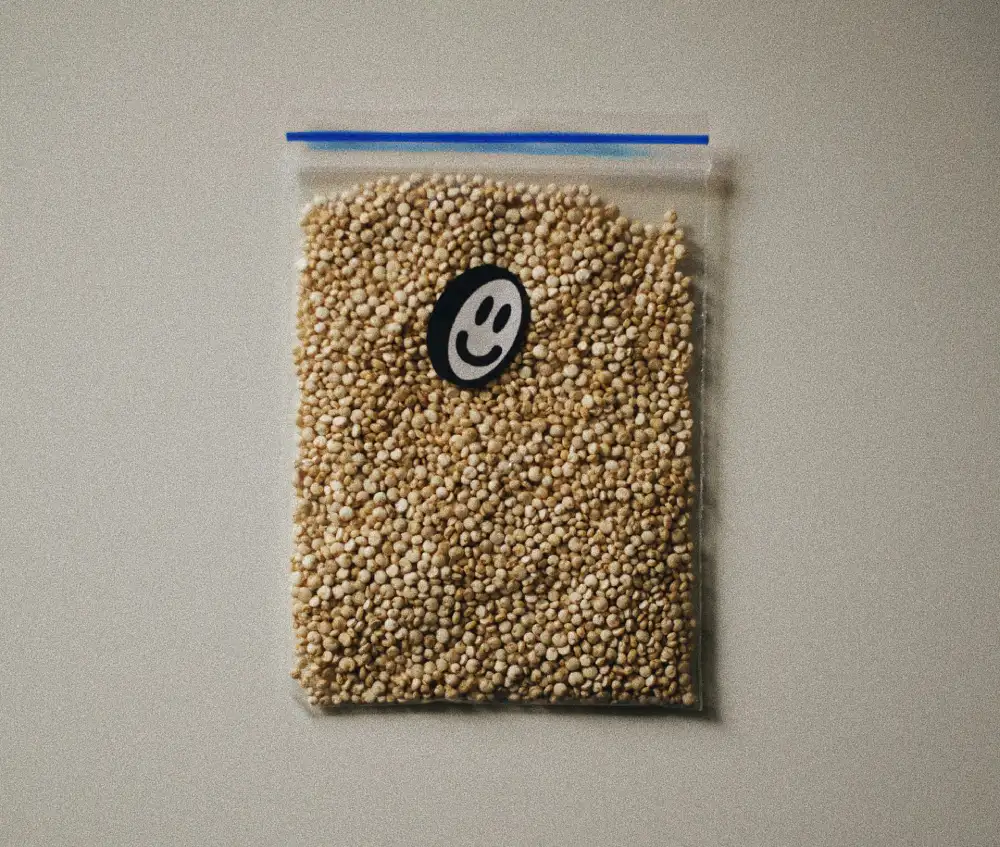Every year, billions of plastic storage bags end up in our oceans and landfills. If you’re wondering “can you recycle Ziploc bags?”, the answer is yes – but there’s much more to the story. Let’s dive into everything you need to know about reducing your plastic footprint while still keeping your food fresh and organized.
The Environmental Impact: Why It Matters
One Ziploc bag can take up to 500 years to decompose. While many ask “can you recycle Ziploc bags?”, an even better question might be how we can reduce their use altogether. Just like many wonder “is bubble wrap recyclable?”, the key lies in understanding both recycling options and alternatives.
Who Invented Ziploc Bags
Steven Ausnit innovated food storage with Ziploc bags in 1968. These handy plastic bags quickly became a household staple, used for everything from packing lunches to organizing paperwork. However, with their ease grows a concern, can you recycle Ziploc bags or not? Their convenience comes with an environmental cost. Improper disposal of these single-use plastics can harm our environment.
In a nutshell: Can you recycle Ziploc bags

Ziploc bags are recyclable but need separate disposal to avoid tangling in recycling machines. You can take them to recycling centers or stores that accept plastic materials. Understanding Ziploc bags recyclability allows us to contribute to waste reduction efforts by returning them to stores, reusing them, and choosing reusable food storage options.
Are Ziploc Bags Recyclable

Ziploc bags are recyclable but not as easy as you might think. They are usually not recyclable in curbside recycling programs. The thin plastic they’re made from can jam recycling equipment and contaminate other recyclables.
Sorting Ziploc Bags for Recycling
They are made of a type of plastic called low-density polyethylene (LDPE). When it comes to recycle Ziploc bags, not all of them are the same. Here’s the breakdown:
- Standard polyethene (PE) bags: These can often be recycled in programs that accept plastic films.
- PE bags with slider locks: These can be trickier to recycle because of their mixed materials.
Recycling centers that take LDPE usually have a bin or container designated for it, or it can be mixed with other #4-labeled plastics.
How to Properly Recycle Your Plastic Bags
Most curbside programs don’t accept Ziploc bags, but that doesn’t mean recycling is impossible. Here’s your step-by-step guide:
- Clean and dry completely (residual moisture breeds bacteria)
- Remove any non-plastic components
- Collect multiple bags together
- Take to designated drop-off locations:
- Major grocery stores
- Retail chains
- Specialized recycling centers
Pro tip: Just as many ask “is bubble wrap recyclable?”, similar rules apply – keep materials clean and dry for optimal recycling.
Smart Reuse Strategies: When and How
Before recycling, consider reusing. Here’s when it’s safe:
✅ DO REUSE:
- Bags that held dry snacks
- Storage for non-food items
- Organizing craft supplies
- Travel toiletry containers
❌ DON’T REUSE:
- Bags exposed to raw meat
- Damaged or scratched bags
- Bags that held allergens
- Bags with strong odors
Professional Cleaning Methods
While many wonder “can you recycle Ziploc bags?”, proper cleaning can extend their life:
- Wash with hot, soapy water
- Use a bottle brush for corners
- Sanitize with vinegar solution
- Dry completely on a specialized bag dryer
- Inspect for damage before reuse
Just as “is bubble wrap recyclable?” requires specific handling, proper bag maintenance ensures safe reuse.
Sustainable Alternatives
The best recycling is avoiding single-use plastics altogether:
- Silicone Storage Bags
- Dishwasher safe
- Heat resistant
- Last 3-5 years
- Glass Containers
- Completely non-toxic
- Microwave safe
- Indefinite lifespan
- Beeswax Wraps
- Biodegradable
- Natural antibacterial properties
- Lasts up to one year
- Cloth Storage Bags
- Machine washable
- Perfect for dry goods
- Sustainably produced
- Compostable Bags
- Made from PLA (polylactic acid)
- Biodegradable
- Breaks down naturally
The Future of Storage Solutions
Manufacturers are developing more sustainable options, including:
- Plant-based plastics
- Biodegradable sealing mechanisms
- Compostable materials
- Recycled content bags
Taking Action: Your Next Steps
- Start a bag recycling station at home
- Invest in reusable alternatives
- Share recycling information with your community
- Support businesses using sustainable packaging
- Track your plastic reduction progress
Remember, while knowing if you can recycle Ziploc bags is important, the goal is reducing overall plastic consumption. Every small change adds up to significant environmental impact.
Final Thoughts
Ziploc bags can be recycled in specific circumstances. By understanding proper recycling methods, reuse opportunities, and available alternatives, we can significantly reduce plastic waste while maintaining convenience. Whether you’re recycling existing bags or shifting to sustainable options, every action counts towards sustainability and a healthier environment.




